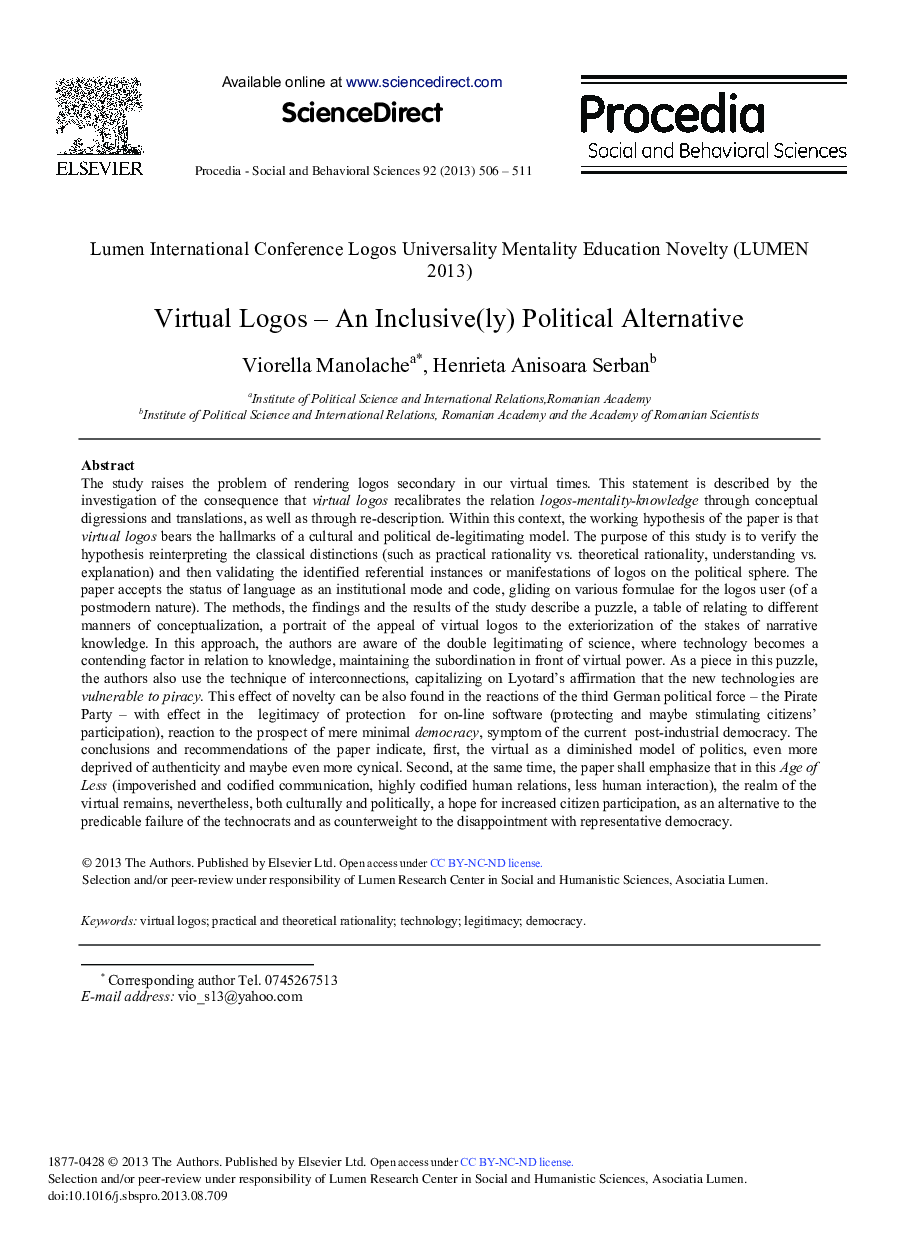| کد مقاله | کد نشریه | سال انتشار | مقاله انگلیسی | نسخه تمام متن |
|---|---|---|---|---|
| 1117965 | 1488467 | 2013 | 6 صفحه PDF | دانلود رایگان |

The study raises the problem of rendering logos secondary in our virtual times. This statement is described by the investigation of the consequence that virtual logos recalibrates the relation logos-mentality-knowledge through conceptual digressions and translations, as well as through re-description. Within this context, the working hypothesis of the paper is that virtual logos bears the hallmarks of a cultural and political de-legitimating model. The purpose of this study is to verify the hypothesis reinterpreting the classical distinctions (such as practical rationality vs. theoretical rationality, understanding vs. explanation) and then validating the identified referential instances or manifestations of logos on the political sphere. The paper accepts the status of language as an institutional mode and code, gliding on various formulae for the logos user (of a postmodern nature). The methods, the findings and the results of the study describe a puzzle, a table of relating to different manners of conceptualization, a portrait of the appeal of virtual logos to the exteriorization of the stakes of narrative knowledge. In this approach, the authors are aware of the double legitimating of science, where technology becomes a contending factor in relation to knowledge, maintaining the subordination in front of virtual power. As a piece in this puzzle, the authors also use the technique of interconnections, capitalizing on Lyotard's affirmation that the new technologies are vulnerable to piracy. This effect of novelty can be also found in the reactions of the third German political force – the Pirate Party – with effect in the legitimacy of protection for on-line software (protecting and maybe stimulating citizens’ participation), reaction to the prospect of mere minimal democracy, symptom of the current post-industrial democracy. The conclusions and recommendations of the paper indicate, first, the virtual as a diminished model of politics, even more deprived of authenticity and maybe even more cynical. Second, at the same time, the paper shall emphasize that in this Age of Less (impoverished and codified communication, highly codified human relations, less human interaction), the realm of the virtual remains, nevertheless, both culturally and politically, a hope for increased citizen participation, as an alternative to the predicable failure of the technocrats and as counterweight to the disappointment with representative democracy.
Journal: Procedia - Social and Behavioral Sciences - Volume 92, 10 October 2013, Pages 506-511